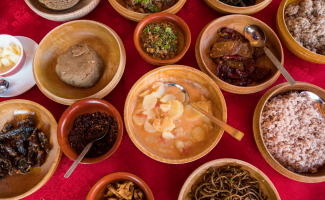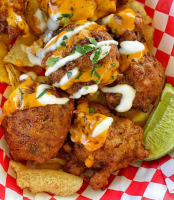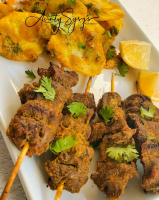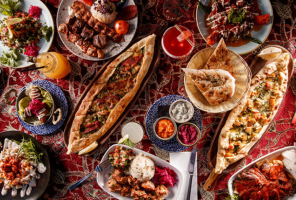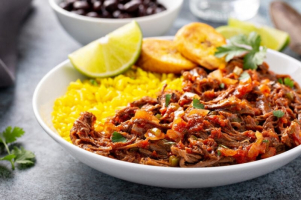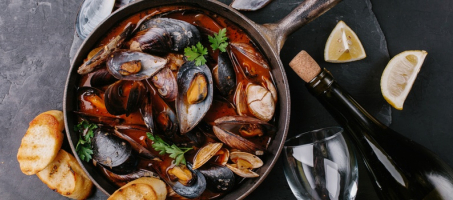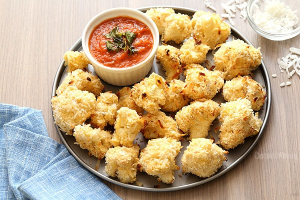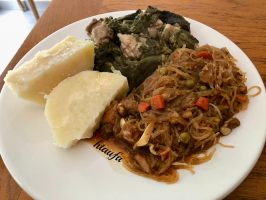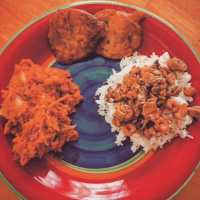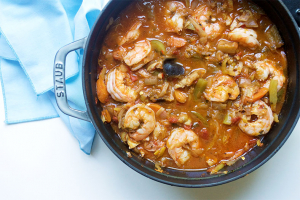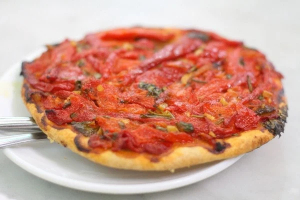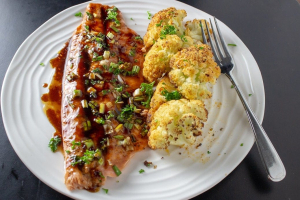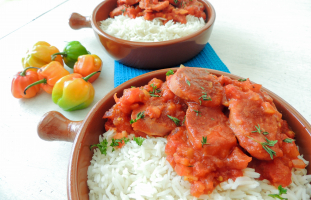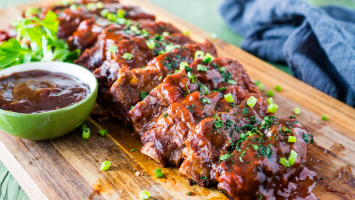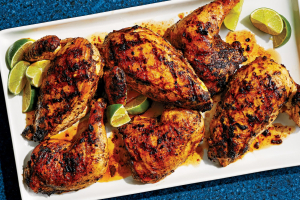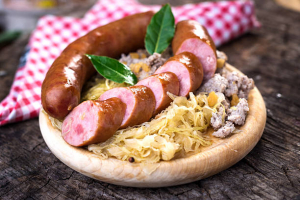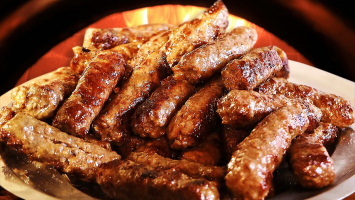Top 7 Best Icelandic Foods with Recipe
Everyone knows about Iceland's amazing natural beauty, from cascading waterfalls thundering down jagged mountain cliffs to the brilliant, colorful dancing ... read more...auroras dazzling the Arctic sky to the frozen fractured glaciers flanked by black sand beaches and craggy lava rocks. However, most people have no idea what to expect when it comes to Icelandic food. As a result, in this article, Toplist will help you find out the top 7 best Icelandic dishes.
-
Hangikjöt Icelandic smoked lamb (hangikjöt) is dry-salted or brine-pickled and cold-smoked over a fire fueled by dried sheep dung. The smoking procedure imparts a distinct flavor to the meat. Traditional smoked lamb is an essential feature of Icelandic Christmas celebrations, and it is often served with boiled potatoes, white sauce, and canned peas. It's also popular as lunch meat on Icelandic rye pancakes or other sorts of bread. It's everything a holiday Icelandic dish should be: delicate, nutritious, and wonderful. It's similar to ham as a cold snack that you may put on a slice of bread as a topping.
Traditional smoked lamb, usually the leg or shoulder, is first dry salted or brined. For curing, sodium nitrite is employed, although additive injection and tumbling are not used. After salting, the meat is cold-smoked over a fire with sheep dung, sometimes mixed with birch. The length of time spent smoking varies greatly based on the circumstances and personal preferences.
Ingredients:
- Legs, thighs, or sides of lamb
- Water, coarse salt, sugar, nitrates
- Potatoes
- Béchamel sauce
How to make Smoked Lamb:
- Heat the water to boiling and mix in sugar, salt, and nitrates and cook for 5-10 minutes. Strain and cool the liquid.
- Soak the leg in a normal brine solution overnight (salt, sugar, nitrates)
- After draining, place the lamb in the fridge for a day or two to allow it to create a pellicle.
- Smoke for at least 48 hours. Use an alder combination and dried, broken up sheep crap.
- Refrigerate for at least four days to allow the smoky flavor to mature and saturate the meat.
- Depending on the size, poach for 30 to 60 minutes. Cut into pink slices and serve.
- Traditional accompaniments include canned peas, simply boiled potatoes, and béchamel sauce. It's also good on bread.
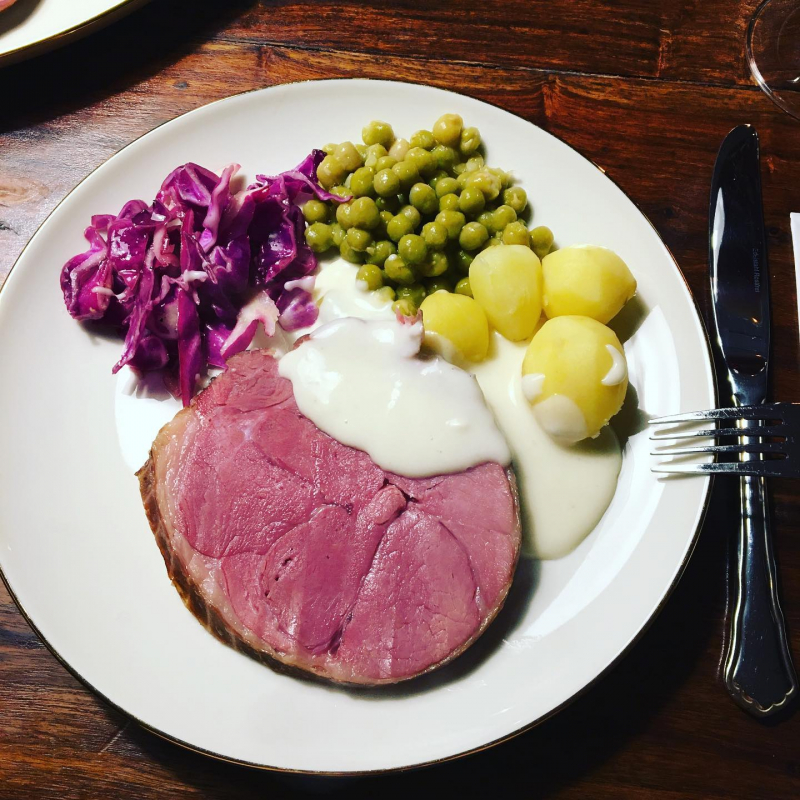
https://www.instagram.com/valdissidlav/ 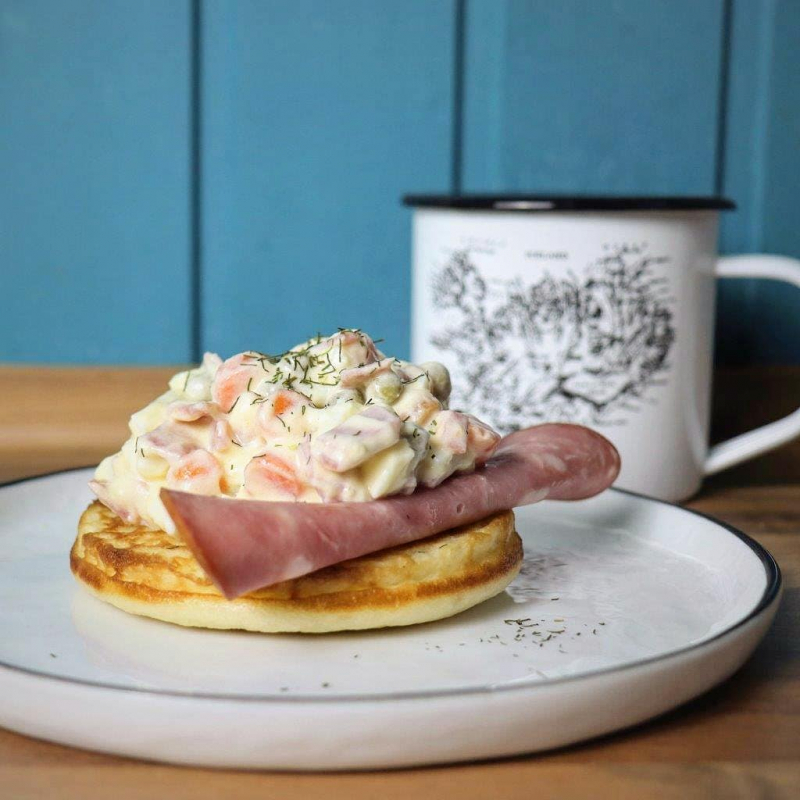
https://www.instagram.com/islandfankochbuch/ -
Many people consider kjötsùpa to be the most traditional Icelandic dish. It was initially interpreted as "meat soup," because the lamb was considered meat for many centuries. There was no other meat to eat or only a small amount.Kjötsùpa is created from organic, free-roaming, grass-fed lamb and a selection of hardy vegetables grown by the inhabitants in this difficult terrain (such as potato, carrots, onion). It is still a popular dish in Iceland, whether served in restaurants or prepared at home. Perfect for giving you an energy boost on cold winter days.
Ingredients:
- 2 tablespoons olive oil
- 1 teaspoon finely chopped garlic
- 3 pounds bone-in lamb shoulder or thick chops
- 1 medium onion, sliced
- 1/3 cup brown rice, or rolled oats
- 6 cups water
- 1/2 teaspoon dried thyme
- 1/2 teaspoon dried oregano
- 1/2 head cabbage, coarsely chopped
- 3 medium carrots, 1/2-inch dice
- 1/2 cup diced rutabaga
- 1 cup cauliflower florets, optional
- 4 medium potatoes, 1/2-inch dice
- Salt, to taste
- Freshly ground black pepper, to taste
How to make Kjötsúpa (Lamb Soup):
- Collect all of the ingredients.
- Heat the olive oil in a large saucepan or Dutch oven over medium heat and sauté the garlic for 1 to 2 minutes (do not brown). Brown the lamb chunks on all sides.
- Sauté the sliced onion in the pot for about 1 minute before adding the brown rice and water. Raise the heat to high and bring the soup to a low boil; cook for 5 minutes, skimming away any foam that rises.
- Reduce the heat to medium, add the dried thyme and oregano, and simmer for 40 minutes, covered.
- Mix the cabbage, carrots, rutabaga, cauliflower (if using), and cubed potatoes in a mixing bowl. Cook for a further 20 minutes, covered, or until the vegetables are fork-tender.
- Remove the meat and bones from the pot, coarsely chop the meat, and return to the soup. Warm for another 5 minutes.
- Season with salt and pepper to taste, then serve and enjoy.
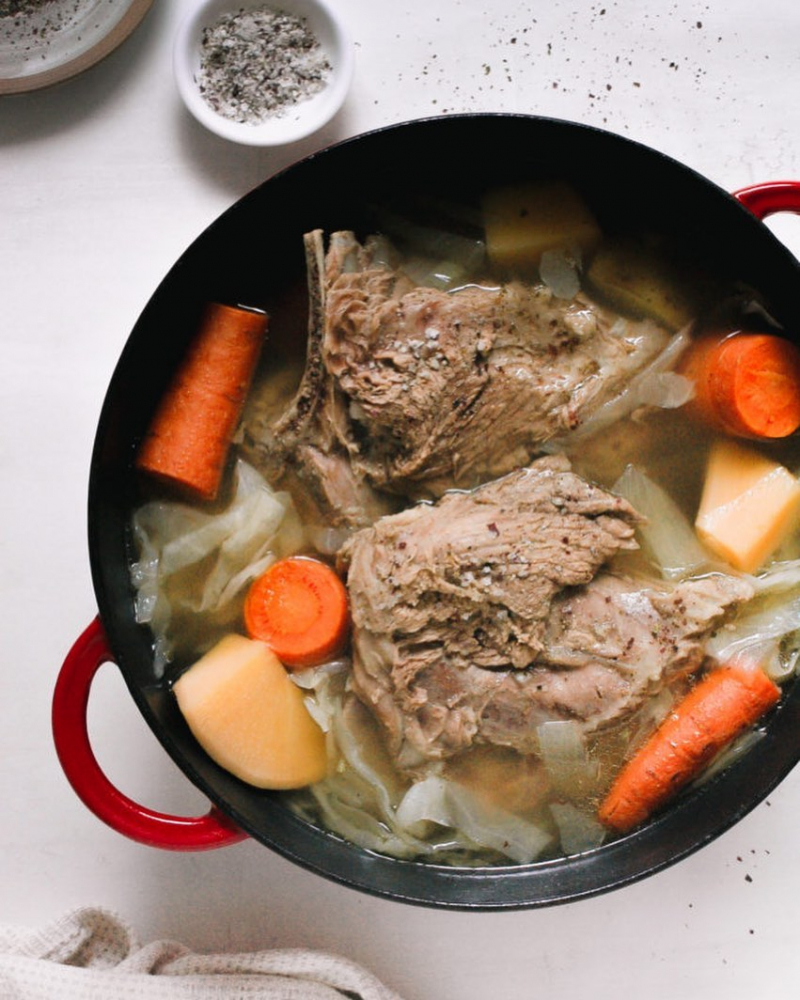
https://www.instagram.com/roottoskykitchen/ 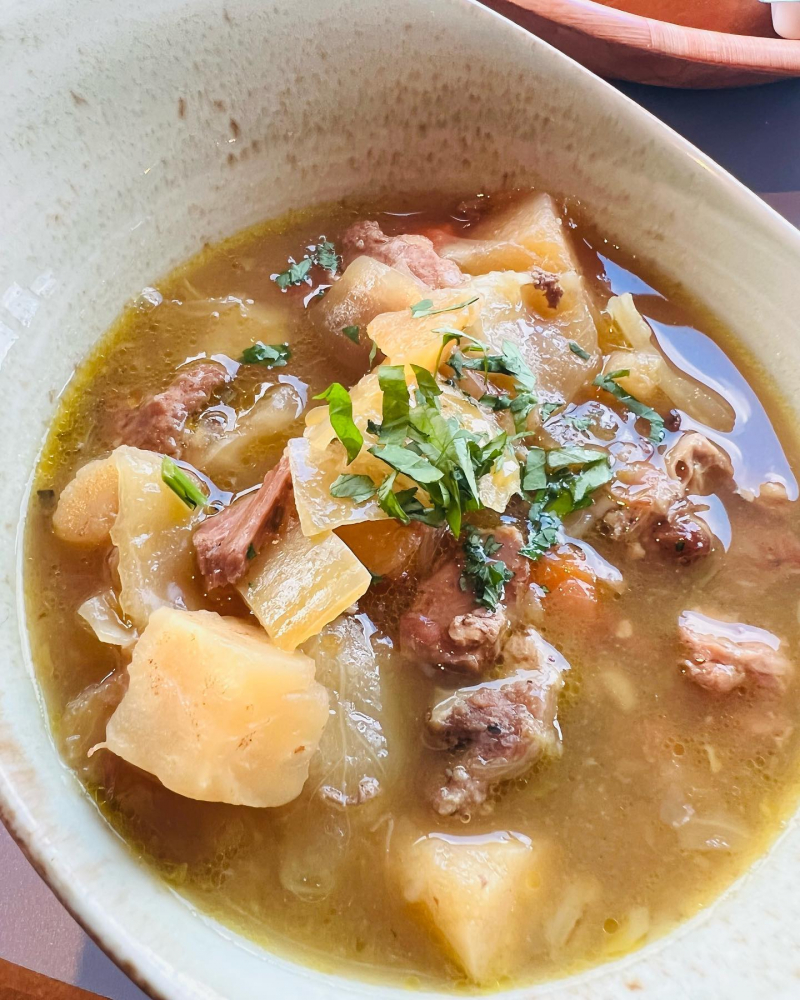
https://www.instagram.com/vinceeatseverything/ -
Icelandic lamb hot dogs are popular among both residents and tourists. Since 1936, Reykjavik's famous Bjarins Beztu Pylsur hot dog stand (which translates to "best hot dogs in town") has proudly served them near the port. The signature Icelandic hot dog is made with fresh Icelandic lamb and served on a warm bun with raw white onions, crispy fried onions, and ketchup, remoulade (mayo, capers, mustard, herbs), and pylsusinnep (brown mustard).
Ingredients:
- 6 hot dogs
- 6 hot dog buns
- 12 oz of beer (Viking or Gull are traditional but any lager will work)
- 1 yellow onion
- 1 fried onion (recipe below)
- 4 tablespoons ketchup
- 4 tablespoons sweet mustard
- 4 tablespoons of remoulade (recipe below)
How to make Pylsur:
- Pour beer into a large skillet and heat over medium heat until hot dogs are warmed thoroughly.
- Toast the open bun lightly.
- Spread ketchup, mustard, and remoulade on each bun before topping with the cooked hot dog and raw onion.
- Garnish with fried onions
How to make Remoulade:
Blend all the ingredients including 2 cups of mayonnaise, 1 tablespoon chopped gherkin, 1 tablespoon white wine vinegar, 1 teaspoon dijon mustard.
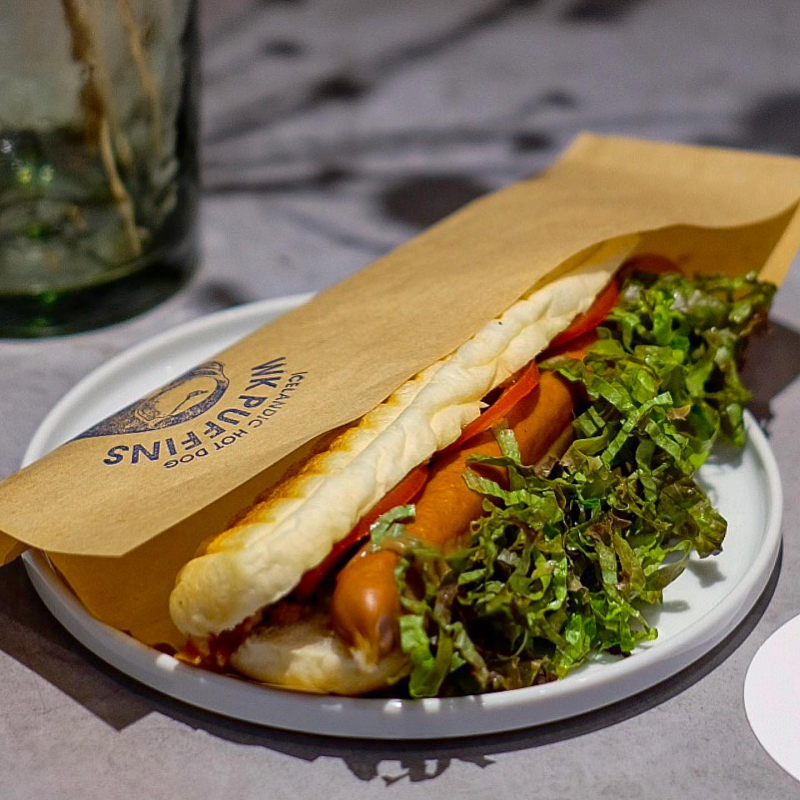
https://www.instagram.com/suzu_premiermai/ 
https://www.instagram.com/okarynna/ -
Atlantic Cod is probably the most popular and common type of saltwater fish in the world, second only to salmon. You might have cod because it's available in stores all around the world, but the one fished or farmed in the Atlantic Ocean is the healthiest. Icelandic cod may consume a lot of good seafood and grow rather large because of the Atlantic Ocean's rich marine life. As a result, they don't have many natural predators, allowing them to grow quickly and naturally.
Fresh fish is available on the menus of all Icelandic restaurants, and many of them also serve "catch of the day," which may be cod. Matur og drykkur, a restaurant in Reykjavik that prides itself on preserving traditional Icelandic food, also serves codhead, a centuries-old delicacy. This does not appear to be as frightening as it sounds. The codhead is being grilled for 40 minutes and has a lot of tender, rich meat to enjoy.
Ingredients:
- 1 lb Icelandic Cod fillet thick fillet is best
- Salute Santé! Lemon Grapeseed Oil
- 1 lemon juiced
- 1 pinch Maldon salt
- pepper to taste
How to make Atlantic Cod:
- Preheat the oven to 380 degrees
- Fresh lemon juice should be squeezed over both sides of the cod.
- On both sides, grind fresh pepper and sprinkle with Maldon salt.
- Allow marinating for 10 minutes after drizzling with 2 tbsp lemon grapeseed oil.
- Heat 1 tbsp lemon oil in a pan over high heat before adding fish fillets. 2 minutes of sautéing
- Remove the pan from the heat and set it aside for 30 seconds to cool (best if on a cold surface to release the fillet from the pan).
- Return the fish to the pan and reheat it. Cook for another 2 minutes.
- Place the pan in the oven for 7 minutes to cook.
- Remove from the oven and set aside for 2 minutes before serving.
How to make Lemon Emulsion Sauce:
- Combine all ingredients including 1/2 cup chicken or vegetable broth, 1 fresh lemon juiced, 1/2 tbsp butter, 2 tbsp Salute Santé! Chardonnay Grapeseed Oil, 1/2 fresh lemon zested salt to taste in a shallow saucepan and bring to a boil.
- Reduce the heat and simmer to reduce, about 3 minutes.
- Pour over fish, chicken, or rice.
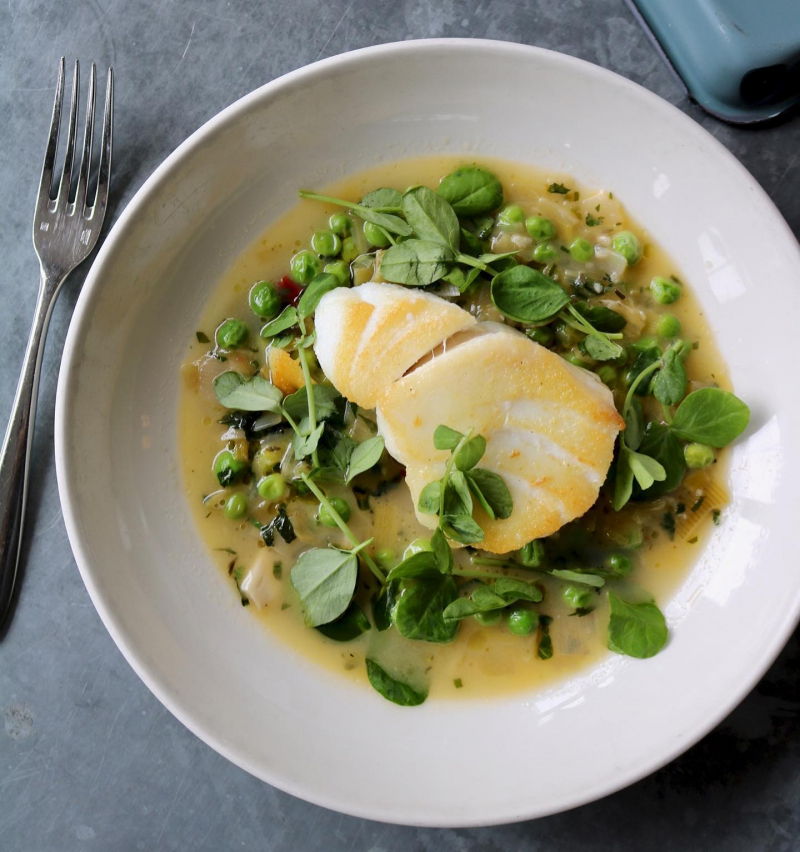
https://www.instagram.com/cookshopnyc/ 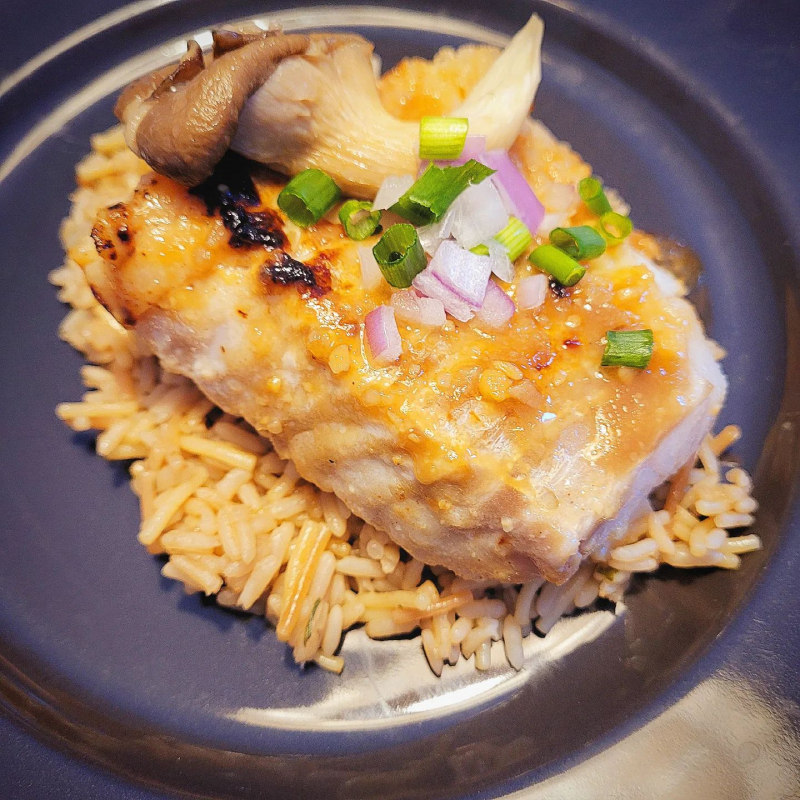
https://www.instagram.com/alanlukyyz/ -
The Icelandic Langoustine (mini lobster) soup is one of the most popular meals at Reykjavik's Sgreifinn restaurant. Icelandic lobster is caught in the wild (rather than farmed) in Iceland's South Coast seas. The lobster has exceptionally soft meat that is rich in flavor, and the lobster soup is creamy and salty, making it a true delicacy at any time of year. It's served with toast or baguette slices.
Ingredients:
- 10 tablespoons butter, divided
- 2 large onions, coarsely chopped
- 5 cloves garlic, coarsely chopped
- 2 tablespoons salt
- 2 pounds lobster tails - shelled, meat coarsely chopped, and shells reserved
- 8 button mushrooms, chopped
- 1 Red Delicious apple, coarsely chopped
- 1 red bell pepper, coarsely chopped
- 4 carrots, coarsely chopped
- ¼ cup tomato paste
- 3 ½ quarts water
- 2 tablespoons ground paprika
- 2 tablespoons curry powder
- 2 tablespoons dried tarragon
- 2 teaspoons chili powder
- 2 teaspoons ground cayenne pepper
- ¼ cup all-purpose flour
- 1 cup heavy whipping cream
How to make Langoustine soup:
- In a large pot over medium heat, melt 6 tablespoons of butter. Cook and stir the onions, garlic, and salt for 5 minutes, or until the onions soften. Combine the lobster shells, mushrooms, apple, red bell pepper, carrots, and tomato paste in a mixing bowl. Cook and stir for 7 minutes, or until vegetables soften. Pour in the water, paprika, curry powder, tarragon, chili powder, and cayenne pepper. Cook, uncovered, for about 2 hours over medium-low heat, stirring periodically.
- Remove soup from heat; drain liquid into a basin using a mesh colander to get roughly 2 quarts. Remove the lobster shells and veggies. Rinse out the pot.
- In a medium saucepan, melt the remaining 4 tablespoons of butter. Add flour and stir rapidly for 2 to 3 minutes, scraping the bottom of the pot, to make a thick roux. Add the strained liquid 2 cups at a time, mixing well after each addition until completely smooth, about 5 minutes. Maintain a low simmer while stirring in the heavy cream. Ladle hot soup generously on top of the lobster meat in serving bowls.
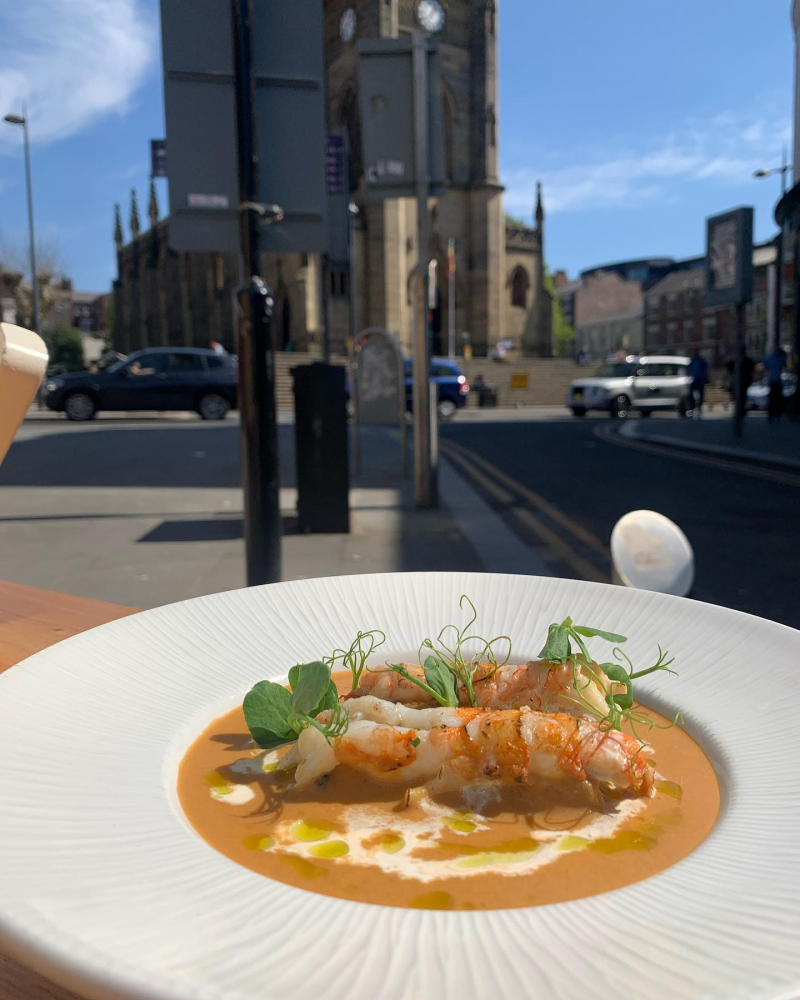
https://www.instagram.com/theitalianclubfish/ 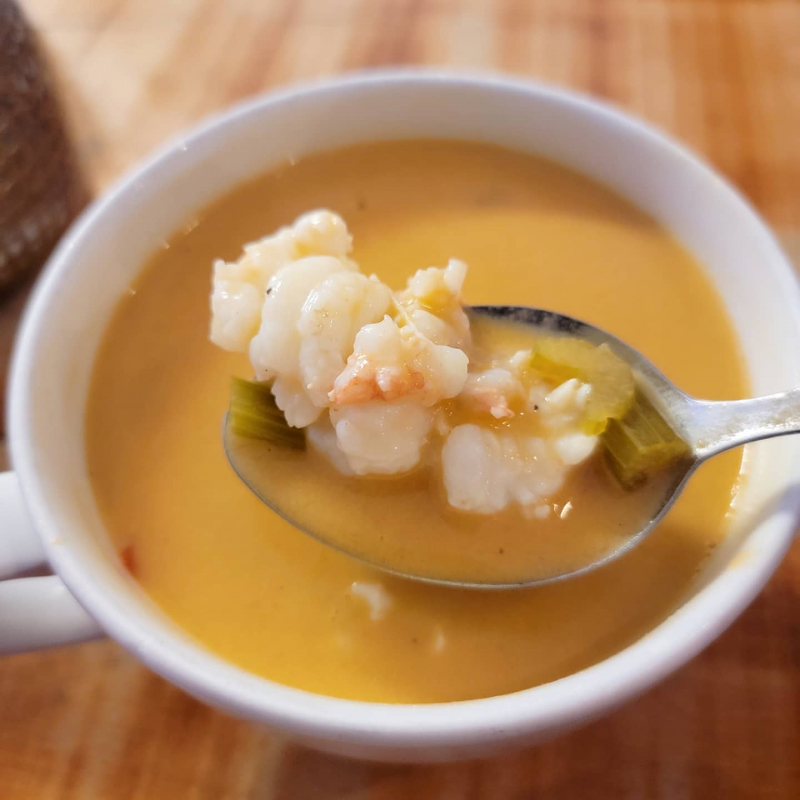
https://www.instagram.com/grumpy_eats/ -
Plokkfiskur is Iceland's national stew. A straightforward but flavorful combination of cooked and mashed Atlantic cod, flour, milk, potatoes, and onions seasoned with salt and pepper. Centuries ago, the aim was to use and combine all of the leftovers from other Icelandic delicacies, which is how the Plokkfiskur was born. This habit, as well as others (such as eating codhead), are great examples of the ancient Icelandic mentality: Icelandic cuisine was delicious.
Ingredients:
- 500gr pollock, haddock, cod dock, or any other white fish
- 500gr potatoes
- 1 large yellow onion (or 2 small, or 3 even smaller)
- 50gr butter
- 3 tbs all-purpose flour
- 300ml milk (or more if you prefer it thinner)
- 1tsp salt
- 1tsp white pepper.
How to make Plokkfiskur:
- Peel and boil the potatoes.
- Poach your white fish according to package directions.
- Put aside.
- Onions should be sautéed in butter over medium heat until transparent.
- Whisk the flour into the butter and onions until it forms a paste.
- Whisk in the milk, a ladle at a time, until the sauce is thick.
- You've made bechamel, which is fantastic!
- Add the potatoes and fish, broken up, to the mixture.
- If you've used up all of the bechamel and it's still too thick, thin it up with milk or poaching water.
- Season to taste.
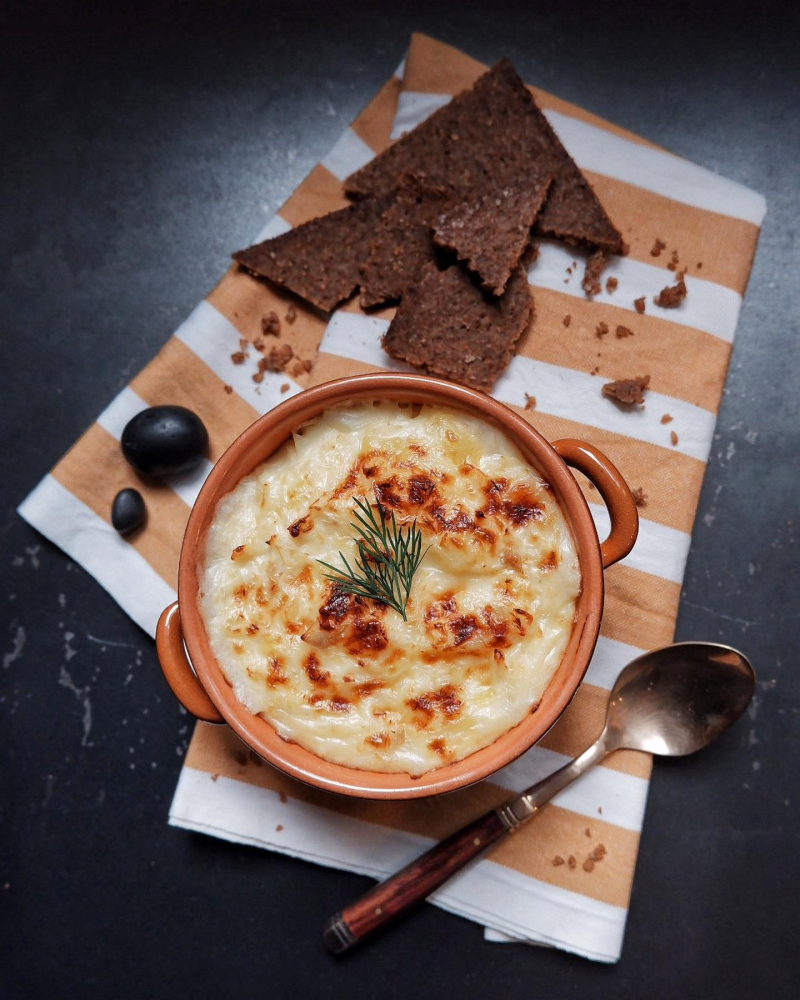
https://www.instagram.com/incucinaconlavaligia/ 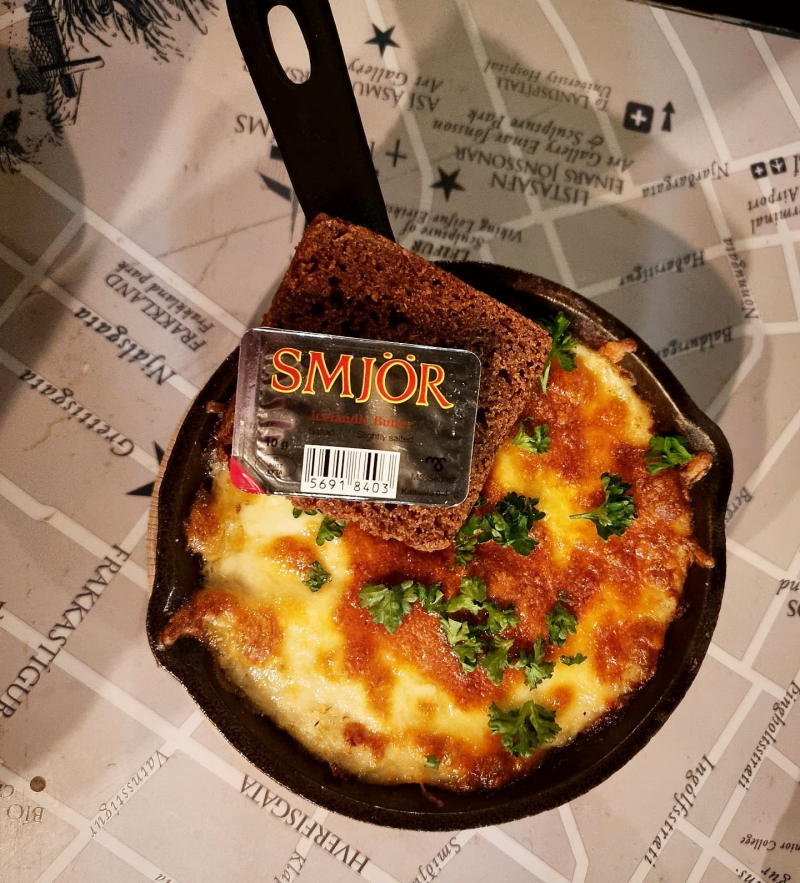
https://www.instagram.com/adventurefood/ -
Arctic char is found in Icelandic freshwater (Iceland has many crystal clear rivers, lakes, and streams). It's the most frequent freshwater fish on the island, and the country is the world's largest producer of Arctic char. It is caught and farmed, but no artificial goods or medications are used on it. You may not be familiar with this type of fish, but it is a member of the Salmonidae family, which means it is closely related to salmon. It tastes light, sweet, and buttery, akin to salmon and trout
Arctic char can be consumed in a wide range of ways. It can be fried, smoked, grilled, broiled, or barbecued, and it can be eaten with mushrooms, veggies, or fries. You can get pretty creative with how you prepare it to suit your personal preferences.
Ingredients:
- 1 (10 ounces) fillet arctic char, rinsed and patted dry
- 1 pinch sea salt to taste
- 1 lime, zested and juiced
- ¼ cup olive oil
- ¼ cup sherry wine
- 3 sprigs rosemary, leaves stripped
- 2 cloves garlic
- ground black pepper to taste
- 1 teaspoon cayenne pepper, or to taste
How to make Arctic Char:
- Preheat the oven to 400°F (200 degrees C). Aluminum foil should be used to line a baking dish.
- Season the arctic char with salt and pepper, then lay it in the prepared baking dish and top with lime zest.
- In a food processor, combine lime juice, olive oil, sherry, rosemary, and garlic; pulse until garlic is finely minced.
- Season the mixture over the fish with black pepper and cayenne pepper.
- Bake until the fish flakes easily with a fork, 12 to 15 minutes, basting halfway through with pan juices. When the fish is almost done, turn the oven to broil for the last two minutes, or until browned.
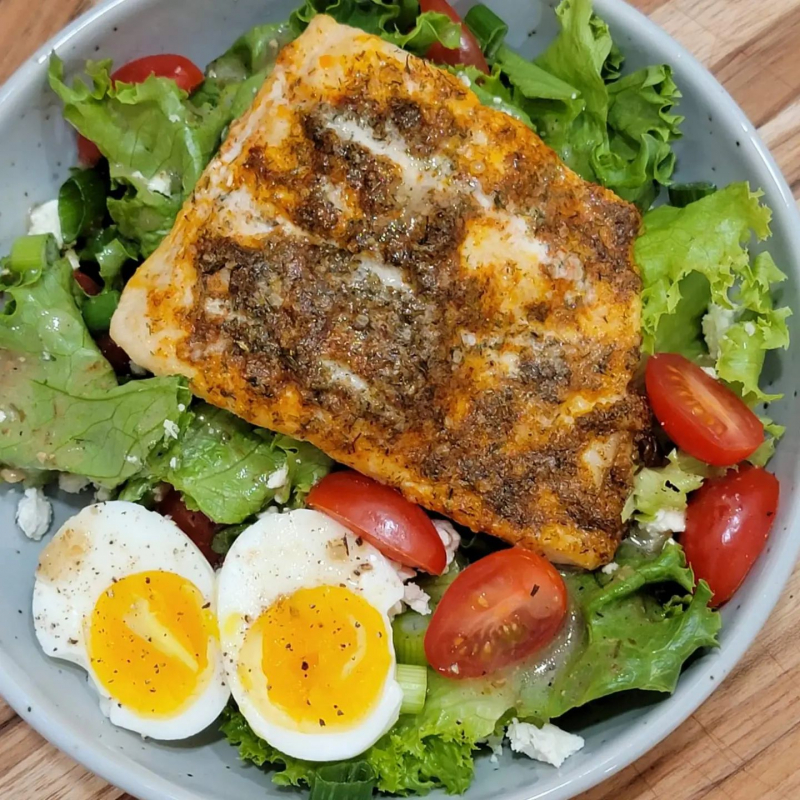
https://www.instagram.com/craftbeefco/ 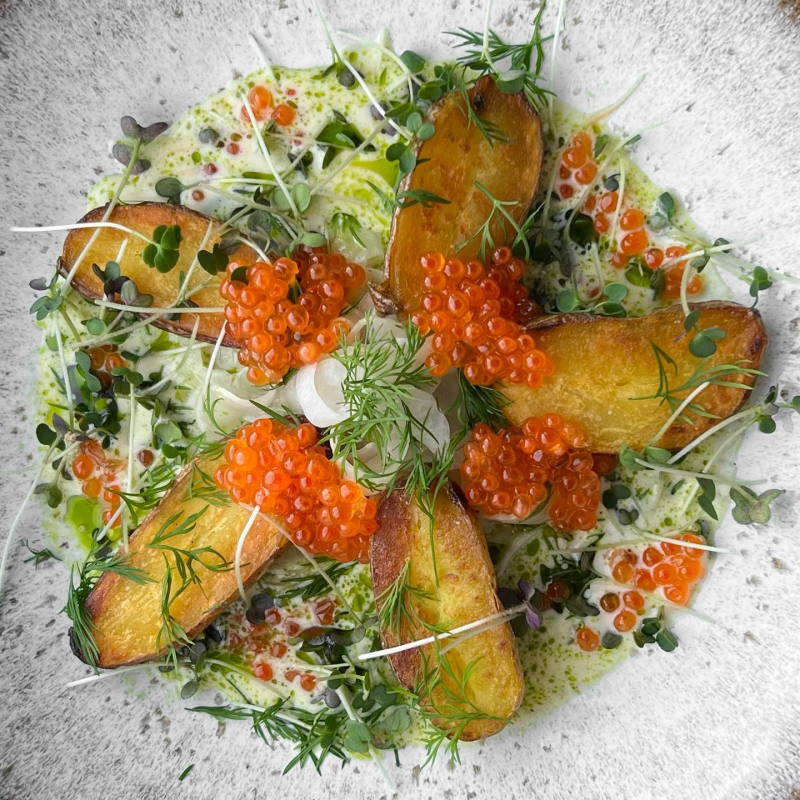
https://www.instagram.com/knifeandapron/









